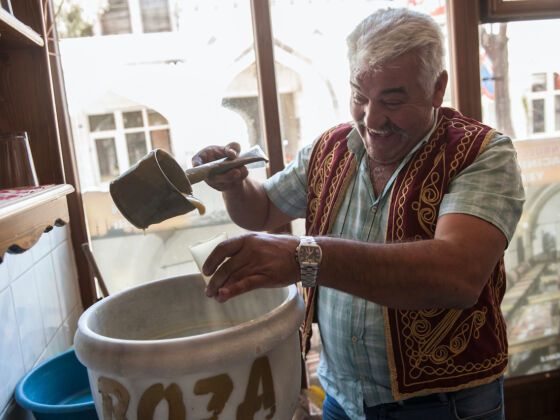1. Your hangover companion is not coffee.
In Turkey, coffee is the last thing we think of when it comes to recovering from hangover. Instead, with throbbing heads and uneasy stomachs, we turn to lentil soup or kokoreç (crispy and hot lamb intestine wrapped in white bread).
2. You eat yogurt with everything.
In Turkey, plain yogurt is served on every single dinner table. Almost no meal goes without it, so when you don’t have it for a day or two, you immediately feel that something very essential is missing.
You go as far as eating yogurt with fish, even though your mom has warned you many times that this combination might lead to food poisoning in case the fish is not fresh. Yet, there is a delicious way to have them both at the very same table when they’re served as cold dishes. When abroad, you search every single supermarket for that same homely taste you’re known for the last 30 years and what Danone has to offer does not cut it to satisfy your craving.
